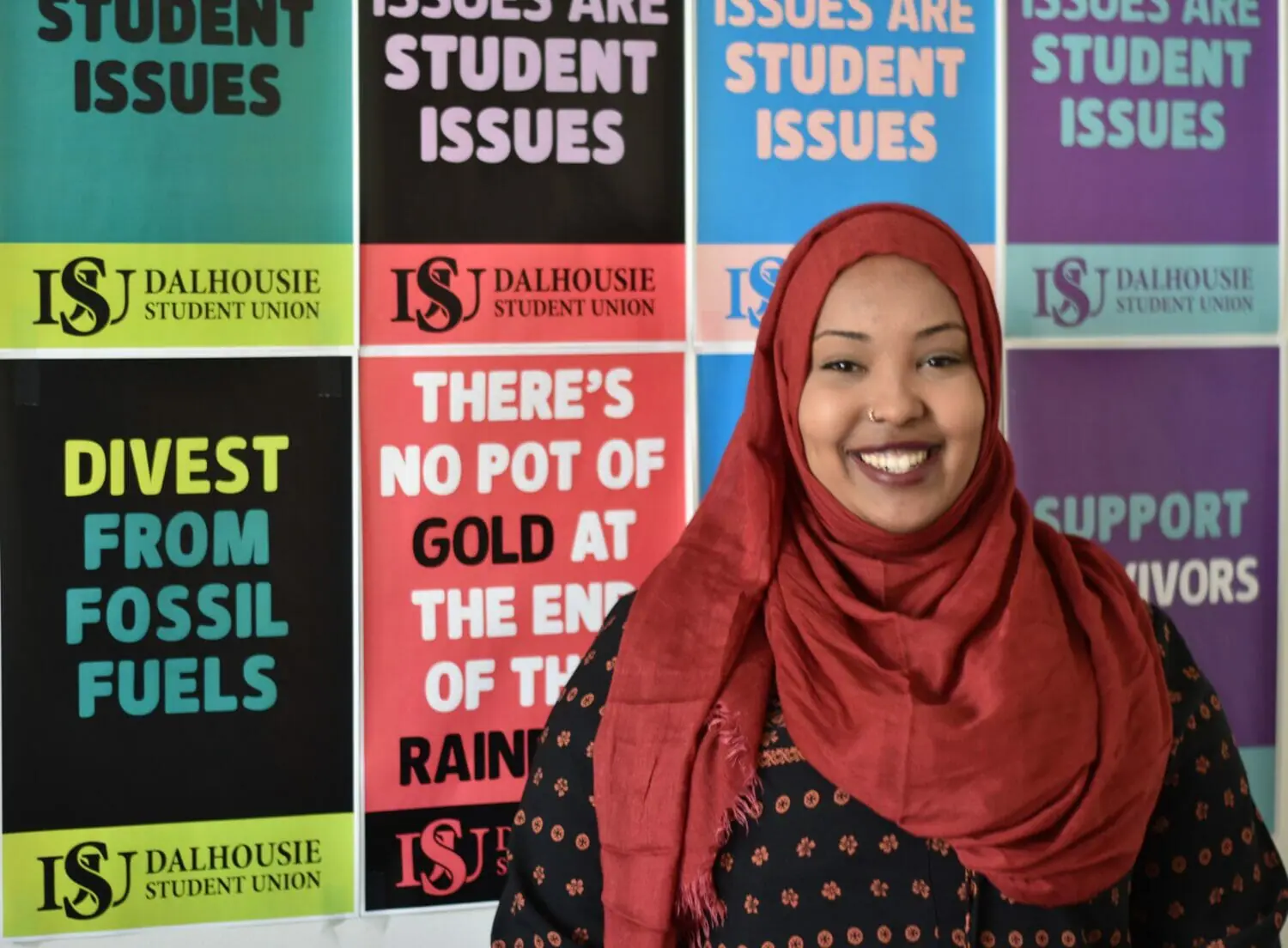Hometown: Halifax, Nova Scotia
Program: International Development & Computer Sciences
Amina Abawajy cannot pinpoint a specific moment at which she found herself interested in social justice activism—but she’s sure that she’s always been interested.
“I really believe that existence is resistance for a lot of racialized folks, for queer folks, for folks with disabilities—for marginalized folks in general,” she says. “I think I was involved in social justice before I even knew what social justice was.”
Abawajy is passionate about international development, rooted firmly in her desire to contribute to the place where her family originates from, Ethiopia.
“Something that I firmly believe is that development should be led and shaped by the people who are most affected by it, by the people who have a tangible connection to it,” she says.
Last year Abawajy started a campaign by the name of “Not 15 Million” to raise awareness and funds for Ethiopia as it was going through a drought that the United Nations classified as a humanitarian crisis.
“I have been privileged to go back and visit my family, see where they were raised and all of that,” says Abawajy. “Seeing Ethiopia when it was flourishing and still knowing that people had so little. I couldn’t even imagine how people were dealing with the situation when there was a drought.
“The reason behind the name is that the United Nations predicted that by January 2016 15 million people would be affected by this drought. I wanted to create awareness about this because no one was talking about it. ”
Abawajy created awareness through a GoFundMe campaign, small events, bake sales, handing out flyers and talking to the media. But she also wanted to help financially.
“That’s where the name comes from—wanting to be proactive before the number hit 15 million. We’re here, we’re the global community and we can do something to prevent that from happening.”
On January 16 the Not 15 Million campaign hosted a fundraising dinner at Dalhousie with Ethiopian food and cultural performances.
“I set the goal of $15,000, the number kind of coming out of the event name,” says Abawajy. “I honestly thought that was an unrealistic goal.”
Over 400 people attended the dinner, raising over $26,000. The campaign was led by Girls Take Initiative, a Dalhousie society founded by Abawajy.
“As a computer science student, there is a lack of diversity and specifically a lack of gender diversity,” says Abawajy. “There were barely any females in that field. Not finding a space where I could be in a leadership position, and really wanting to create opportunities for women. This society was founded with the vision of empowering women and girls.”
Abawajy worked at Avalon Sexual Assault Centre for two years and volunteered with the DSU Sexual Assault & Harassment Phone Line during its pilot phase. While she self-identifies as a feminist, Abawajy emphasizes the importance of her identity as an intersectional feminist, quoting Audre Lorde: “there is no such thing as a single-issue struggle because we do not live single issue lives”.
“People are not a singular thing, or a singular identity,” she says. “We have intersecting identities and those are reflected in the ways that we experience different systems of oppression.”
She believes that these differences must be accounted for in the feminist movement.
“I feel like because of this day and age, Islamophobia is most of what I experience,” she says. “Obviously I experience racism and sexism too. On a regular basis I’m welcomed to Canada—which is interesting, because I’m born and raised right here in Halifax. It really sends the message that you cannot look the way you look and be Canadian.
“There have been a number of times where I’ve been told to go back home, or go back where I came from.”
Abawajy recalls an incident on Spring Garden Rd. where she was walking with a friend who was also wearing a hijab, and an individual mumbled “please don’t bomb us, please.”
“My friend was like, ‘did you hear what he said?’ She had to repeat it to me. It just didn’t sink in, I couldn’t fully comprehend it on the spot. That was really… frustrating, and really hurtful.
“I think about that a lot, especially with all the bomb threats that have been happening recently. I think, oh my God, people are going to start looking at me differently.”
As the first black Muslim woman on the DSU’s executive team, Abawajy feels privileged to be in her position and to be there for Muslim students.
“I’m in a position where people can see me. I think that seeing people in positions of power who look like you is really important. I know that in my first year, I did not see that.”


Recent Comments